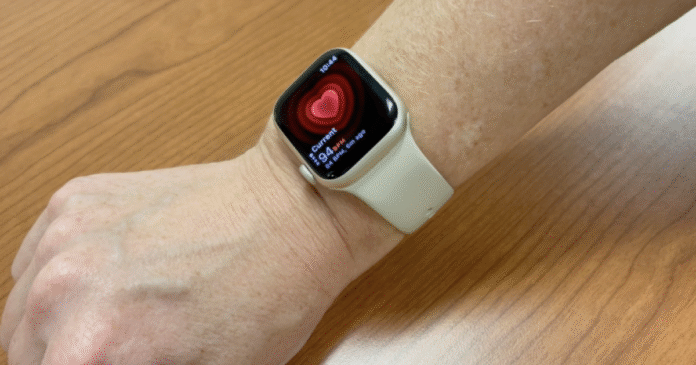COLLEGE STATION, Texas (KRHD) — Researchers at Texas A&M University are working on advanced wearable health technology that could detect diseases before symptoms become obvious, potentially changing how we approach disease prevention.
Dr. Martial Ndeffo, assistant professor of computational epidemiology at Texas A&M University, is part of a collaborative research team with Stanford and Tel Aviv universities developing next-generation smartwatch technology.
“Our research really aims at using [the] physiological information to be able to predict early onset of different health conditions,” Dr. Ndeffo said.

Tyler Dupnick
While current smartwatches already offer various health monitoring features, this research takes wearable technology to a new level by incorporating advanced data analysis.
“We are not just taking the device on its own,” Dr. Ndeffo said. “The device provides the information that we integrate with machine learning to be able to make predictions.”
The technology could significantly impact public health by detecting illness before obvious symptoms begin, potentially limiting disease spread.
“So our objective here is really to be able to empower individuals to make better health decisions and to improve the quality of life by simply having these additional tools on top of the wearable devices,” Dr. Ndeffo said.

Tyler Dupnick
Their efforts are aimed at mitigating the spread of disease, like what we saw during the COVID-19 pandemic.
“This is not just applicable to COVID, but even to pandemic flu, even to seasonal flu, that large-scale use of tool can really have a very significant public health impact,” Dr. Ndeffo said.

Tyler Dupnick
15 ABC asked Dr. Ndeffo about the importance of early detection.
“If you’re able to detect early before the person is showing any symptoms that you have something going on, get yourself checked…to confirm that this person has it and to intervene very early on, that will prevent that potential catastrophic consequences that you have,” Dr. Ndeffo said.
The research team is working to perfect wearable health technology with broad detection capabilities for various infectious diseases and potentially chronic conditions as well, though Ndeffo noted that perfecting such technology takes considerable time.
This story was reported on-air by a journalist and has been converted to this platform with the assistance of AI. Our editorial team verifies all reporting on all platforms for fairness and accuracy.






